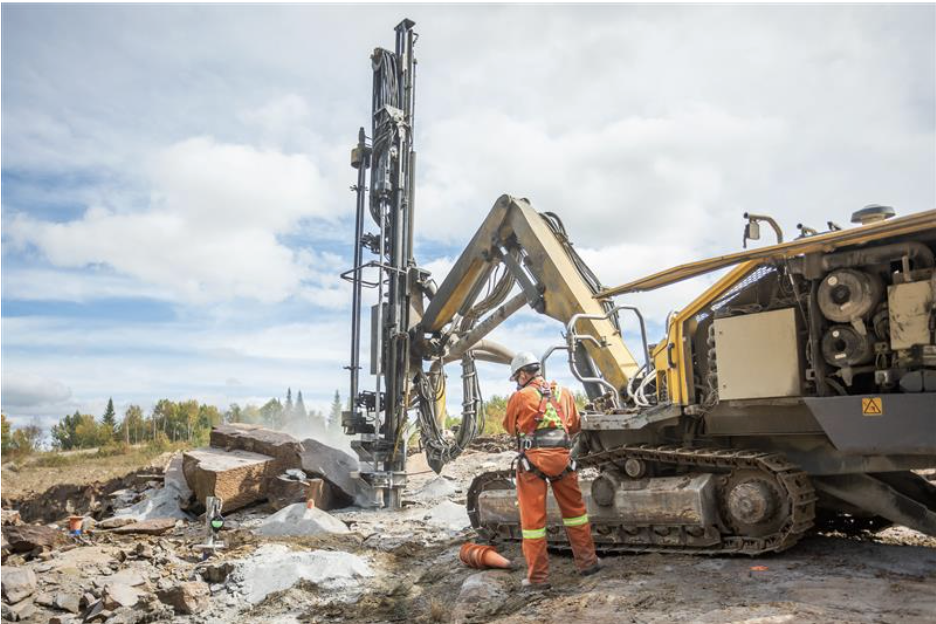Critical Minerals Supply Chain Crisis Spurs North American Production Push

Summary
Full Article
The global critical minerals landscape is undergoing a fundamental transformation as trade tensions between the United States and China escalate, highlighting vulnerabilities in supply chains for materials essential to modern technology and national security. China's recent imposition of new export controls on rare earth elements and related technologies has sent shockwaves through global industries, requiring companies to obtain special approval for exports containing even minimal traces of these strategic materials.
Additional Chinese restrictions extend to large-scale energy storage systems, cathode and anode materials, and battery manufacturing machinery, creating widespread concern about potential ripple effects across multiple sectors. The move comes amid already strained relations between Washington and Beijing, prompting immediate response from U.S. leadership. President Trump has threatened additional 100% tariffs on Chinese goods and export restrictions on critical software scheduled to take effect November 1, signaling that critical minerals have evolved from niche commodities to matters of national sovereignty and economic power.
The European Union is reportedly weighing a coordinated response with Washington and other G7 partners, considering options ranging from renewed dialogue with Beijing to accelerating development of domestic mineral projects to reduce dependence on Chinese supplies. This international concern underscores the strategic importance of minerals that power everything from smartphones and jet engines to wind turbines and electric vehicles.
In response to these developments, the Trump Administration is intensifying investments in industries deemed vital to national security while moving to directly source and stockpile key minerals. The Pentagon's Defense Logistics Agency is reportedly preparing to spend up to $1 billion to bolster strategic reserves, with solicitations already issued for several critical materials. The government has also taken equity stakes in key industry players, generating market speculation about which companies might receive additional White House backing.
Private sector reinforcement is emerging alongside government initiatives. JPMorgan Chase announced a $1.5 trillion, 10-year investment plan focused on industries critical to national security and economic resilience. The bank will channel up to $10 billion in direct equity and venture capital to select U.S. companies. Jamie Dimon, Chairman and CEO of JPMorgan Chase, emphasized that the United States has become overly reliant on unreliable sources for critical minerals, products, and manufacturing essential for national security.
Among critical minerals facing supply constraints, graphite represents one of the most China-dominated markets. According to the U.S. Geological Survey, the United States currently has zero domestic graphite production, creating urgent need for alternative sources as trade restrictions escalate. Nouveau Monde Graphite (NYSE: NMG) is positioning itself as North America's first fully integrated, carbon-neutral producer of natural graphite, aiming to serve growing regional demand. The Canadian company's operations are designed to supply booming markets for electric vehicles, renewable energy storage, data centers, and electronics while providing a reliable alternative to Chinese dominance.
NMG holds key permits to proceed and has established commercial agreements with top manufacturers, placing the company ahead of many competitors in the race to develop North American critical mineral capacity. While the company declines to comment on speculation regarding potential U.S. government investment, financial partners have signaled strong interest in backing development of its mining and processing operations. The company's ultimate ambition involves developing one of the Western World's largest natural graphite projects, controlling the complete value chain from mine to battery materials.
As global competition for critical minerals intensifies, the need for diversified supply chains becomes increasingly apparent. Companies like NMG and a growing number of North American miners are emerging to address supply gaps, with investors closely monitoring developments in this strategically vital sector. The ongoing realignment of critical mineral sourcing reflects broader geopolitical shifts and the recognition that economic security increasingly depends on reliable access to the materials underpinning modern technology and defense systems.

This story is based on an article that was registered on the blockchain. The original source content used for this article is located at NewMediaWire
Article Control ID: 261335